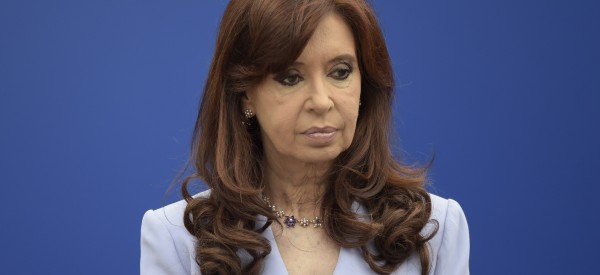
JUAN MABROMATA via Getty Images
BUENOS AIRES, Jan 22 (Reuters) - The death of a prosecutor investigating the bombing of a Jewish community center was not a suicide, as was initially reported, Argentine President Cristina Fernandez said on Thursday.
Alberto Nisman, lead investigator into the 1994 attack on the AMIA Jewish center that killed 85 people, was found dead in his apartment late Sunday, a 22 caliber pistol by his side.
He had accused Fernandez of trying to derail his investigation into the bombing and was due to present his case to Congress hours later on Monday.
The government says two key witnesses in Nisman's case against the president had been falsely presented to him as state intelligence agents.
Fernandez said the deception discredited Nisman's charges against her and points to a conspiracy to smear her name.
"They used him while he was alive and then they needed him dead," she said in an open letter to the country, adding that his death was "sad and terrible."
She did not say who killed him and no one has been arrested in the case, which has shocked Argentines. Social media networks are seething with conspiracy theories, some pointing at Fernandez and her government.
Thousands took to the streets this week to protest the slow pace of justice for the victims of the bombing and demanding answers to the questions around Nisman's death.
Fernandez again defended herself in a Facebook post on Thursday.
"Nisman's accusation not only collapses, but becomes a real political and legal scandal ... That's the key. Prosecutor Nisman did not know that the men identified as intelligence agents were in fact not," she said.
"The spies who were not spies. The questions that turned into certainties. The suicide that I am now convinced was not a suicide."
Argentine courts have accused a group of Iranians of planting the AMIA bomb. Nisman charged last week that Fernandez opened a secret back channel to Tehran as part of a plot to clear the suspects and whitewash the attack.
He said she was pushing to normalize relations with Iran as a step toward clinching a grains-for-oil deal that would help Argentina close its $7 billion per year energy deficit.
The government dismissed the charge as ridiculous. (Reporting by Hugh Bronstein; Editing by Kieran Murray)
Read the whole story 

